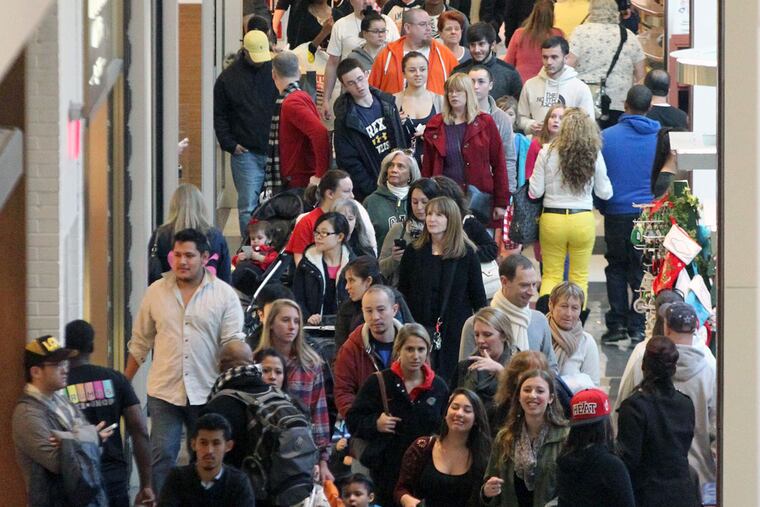Help create better climate for small businesses
The traditional start of the holiday season saw 5.1 million fewer shoppers heading out to the malls and big-box retailers on Black Friday last year, according to the National Retail Federation.

The traditional start of the holiday season saw 5.1 million fewer shoppers heading out to the malls and big-box retailers on Black Friday last year, according to the National Retail Federation.
Millions of shoppers no longer seem willing to fight traffic, wait in long lines, or do physical battle for early-morning deals on the day after Thanksgiving.
Instead, a record number of shoppers are venturing to their local towns and Main Streets in support of Small Business Saturday. Last year, more than 88 million people "shopped small" on the Saturday after Black Friday, according to the National Federation of Independent Business and American Express.
The strong turnout in support of small businesses represented a 14.9 percent increase in foot traffic compared with the previous year. Sales at small, independent retailers climbed to an estimated $14.3 billion.
Started as an American Express campaign in 2010, Small Business Saturday, nestled between Black Friday and Cyber Monday, has become a national phenomenon as more Americans recognize the great value of shopping locally. The numbers are powerful: Data from the research firm Civic Economics shows $68 of every $100 spent at a small businesses stays in the local community, compared with $43 for chain stores.
Fortune 500 firms often get most of the attention, but small businesses remain the backbone of our economy, generating two million of the approximately three million private-sector jobs created last year, according to the U.S. Small Business Administration.
In Pennsylvania, small businesses employ more than 2.5 million people and account for nearly half the workforce. There are 69,000 small businesses in Philadelphia, with 6,000 more opening their doors each year, according to Score Philadelphia, a nonprofit focused on educating entrepreneurs.
Today, "supporting small business" not only means shopping small locally or online, but it also means investing in and creating a supportive business environment ripe for growth. Republic Bank is delighted to be part of that effort.
Many local institutions are also championing the cause. This month, Entrepreneur magazine, in collaboration with the test prep company Princeton Review, ranked Temple University No. 8 on its list of the "Top 50 Schools for Entrepreneurs." Drexel is making an enormous investment through its Innovation Neighborhood, and this parcel of land, which spans 12.2 acres, could tout 6.5 million square feet of working and research space for entrepreneurs in various fields.
Equally important, since 1998, Wharton's Annual Business Plan Competition has been a tremendous success, creating an incubator where students are mentored and advised by seasoned business leaders on how to bring their plans to fruition. Notably, the competition helped launched e-commerce eyeglasses retailer Warby Parker, a company that now employs 500 people and has a valuation of $1.2 billion.
And our city's government is realizing this opportunity. Through StartUp PHL, Mayor Nutter, along with the Philadelphia Industrial Development Corp. and Greater Philadelphia Chamber of Commerce, have dedicated more than $6 million in funding to empower local entrepreneurs to bring new solutions to the market and drive job growth. Consequently, a study this year by CBRE, a commercial real estate services firm, shows that tech employment in the city jumped 30 percent from 2009 to 2014, helping to position Philadelphia as a burgeoning tech hub.
While Philadelphia has made great strides, there is still ample room for improvement, as the city recently received a C grade from a Small Business Friendliness Survey that polled 18,000 proprietors. The top areas cited for improvement included the tax code, regulations, training and networking programs, and ease of starting a business.
With Philadelphia recently being named the country's first World Heritage City, part of a prestigious list that boasts iconic cities such as Paris, Jerusalem, and Rome, now is the time to take our city to the next level by creating an economic environment that is fertile for small-business growth. Supporting small business will be critical to the Philadelphia region's long-term success.
Harry Madonna is the chairman and chief executive officer of Republic Bank. madonna@myrepublicbank.com